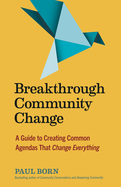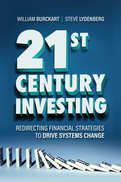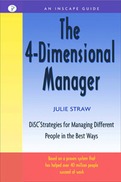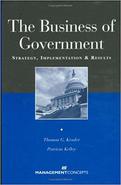Revised to include recent changes in procurement ethics rules, such as the significant additions to the False Claims Act made by Congress in 2009, this book is a complete, all-in-one resource. This plain-English guide focuses on exactly what procurement professionals—both federal officials and contractor employees—need to know to be in compliance with the law and to conduct better business practices.
Federal Procurement Ethics: The Complete Legal Guide, Revised Edition, provides comprehensive, easy-to-understand descriptions of all the ethics rules that procurement professionals in both government and the private sector need to follow. Summaries of recent and relevant court cases that illustrate the need for full compliance with procurement regulations are also included.
Veteran community organizer Paul Born's work has contributed to lowering cancer rates in Maine, improving mental health for young people in Florida, and reducing poverty rates in Canada by 20 percent. In this much-needed new book, he shares stories of how he was able to catalyze local communities and guide them to make significant progress on seemingly intractable community problems.
Born has found that the secret to success is to organize and unite around a common agenda. This is not a list of topics, like a meeting agenda, nor a strategic plan. He offers a process for bringing leaders from businesses, human service organizations, and governments together with people who have a lived experience of a specific community problem. A common agenda is a statement of shared aspirations, a map of the assets in the community, and a road map for how to work together to make those aspirations a reality.
Part I of this book describes how to identify your community's readiness for change; form leadership, action, and strategy teams; create a common agenda; and establish plans for community engagement. Part II presents the approaches and skill sets needed to do the work described in part I.
Remarkably, enormous systemic problems such as climate change, poverty, disease, racism, housing, and many more issues can be best addressed at the local level. Communities can develop solutions tailored to their unique circumstances and can collaborate at a magnitude that can result in a truly transformative impact. This book shows how to make change happen.
It's time for a new way to think about investing, one that can contend with the complex challenges we face in the 21st century.
Investment today has evolved from the basic, conventional approach of the 1950s. Investors have since recognized the importance of sustainable investment and have begun considering environmental and social factors. Yet the complexity of the times forces us to recognize and transition to a third stage of investment practice: system-level investing.
In this paradigm-shifting book, William Burckart and Steve Lydenberg show how system-level investors support and enhance the health and stability of the social, financial, and environmental systems on which they depend for long-term returns. They preserve and strengthen these fundamental systems while still generating competitive or otherwise acceptable performance.
This book is for those investors who believe in that transition. They may be institutions, large or small, concerned about the long-term stability of the environment and society. They may be individual investors who want their children and grandchildren to inherit a just and sustainable world. Whoever they may be, Burckart and Lydenberg show them the what, why, and how of system-level investment in this book: what it means to manage system-level risks and rewards, why it is imperative to do so now, and how to integrate this new way of thinking into their current practice.
Manager: "We have a problem here."
Person 1: "Let's find a quick solution."
Person 2: "I know just how we can solve this problem by working together."
Person 3: "I need to think about the problem before I can offer you a solution."
Person 4: "I'm going to consider this problem from every angle."
Asked to solve the same problem, four people responded four different ways. If you were their manager, your challenge would be to help each individual find an effective, timely solution to the problem. Most managers would do what comes naturally and use the managerial style that is their "first dimension." This will work some of the time - but not all the time.
One managerial style can't help people with four different working styles make the most of their different strengths and overcome their different limitations and roadblocks. In managing others, one style does not fit all. The 4-Dimensional Manager will help you learn to manage different people in the best ways. Through a simple yet powerful self-discovery tool called DiSC, you can become a 4-dimensional manager, able to manage anyone, anywhere, anytime.
- Discover your usual managerial style: Dominance, Influence, Supportiveness, or Conscientiousness
- Read the work styles of the people you manage
- Improve communication and reduce destructive conflict
- Find out how the style of your organization affects you and those you manage
Whether or not you have the formal title of manager, if you provide work direction to others, this book will answer pressing questions you have every day, such as:
- When I delegate, how much information should I give, and when and how should I follow up?
- How can I increase this person's motivation?
- What kind of compliment or reward would this person most value?
- How can I give feedback so it will be understood, accepted, and effective?
- Offers a proven and practical tool managers can use to quickly and accurately assess each employee's work style and adapt their management style to meet the needs of the employee and the situation
- Includes the DiSC(r) self-help tool that has been used by more than 40 million people around the world
- The second book in the "Inscape Guide" series














